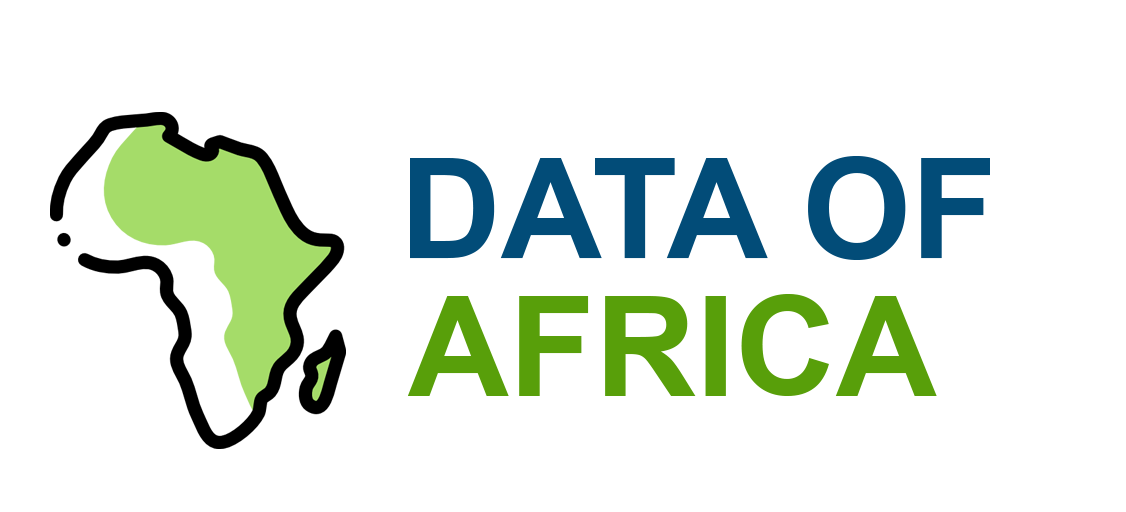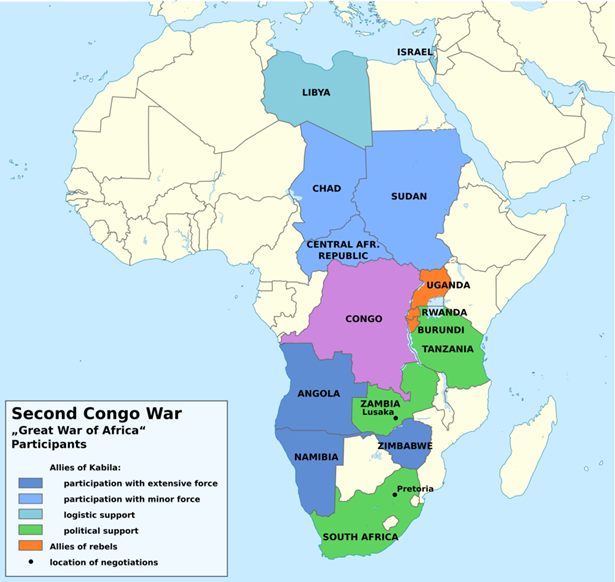The continent remains heavily affected by violent conflict. Between 1989 and 2002, 10 to 15 conflicts broke out each year, with adverse consequences for Africa’s socio-economic and infrastructural development. Between 1994 and 2003, there were 9.2 million deaths due to armed conflict, and as of 2003, 15.6 million people were internally displaced.
Participants in the Second Congo War
In 2008, out of 35 serious conflicts recorded in the world, 13 were located in Africa, where 15 out of 53 countries were affected by a “medium to high intensity crisis”. The situation has not improved over time. In October 2015, nine out of sixteen peacekeeping operations led by the UN were in Africa. In May 2016, nine out of ten ‘situations under investigation’ at the International Criminal Court concerned Africa. Similarly, the conflict in Rwanda was legally qualified as genocide.
While it is possible to characterize African conflicts globally (they are local or cross-border but not inter-state), modern historiography has not reached a consensus on shared explanations on this subject, each situation being, ultimately, considered particular.
There are nevertheless frequently mentioned contextual factors: the weakness or even failure of States (Burundi, Central African Republic, etc.), a phenomenon often correlated with a low level of income and an unequal distribution of income on ethnic or geographical bases. This fuels ethnic antagonisms (Côte d’Ivoire, Rwanda, Tuareg in Mali, etc.) which sometimes cross borders (Liberia and Sierra Leone, Rwanda, Burundi and Uganda, Guinea-Bissau and the Casamance rebellion, etc.). These economic inequalities, in terms of geographical distribution, lead to struggles for the appropriation of areas where natural resources, sources of wealth, are located (South Sudan, Somalia, Democratic Republic of Congo, etc.)
These factors combine in a complex way, especially since in a globalized world, diasporas play a role, through financing, support for the organization of rebellions and the propagation of ideals in countries outside the continent (Eritrea, etc.) and Africa is also part of a “criminal globalization” of “terrorist hotbeds concentrated in a crescent stretching from Pakistan to the Sahel.” This globalization also weighed heavily in the Arab Spring of 2011 in Egypt and Tunisia, as well as, combined with the terrorist problem, in the Libyan conflict, which has an international dimension.
For more information :
- https://fr.wikipedia.org/wiki/Portail:Afrique
- https://en.wikipedia.org/wiki/Africa
- https://africacenter.org/
- https://journals.openedition.org/etudesafricaines/
- https://etudes-africaines.cnrs.fr/
- https://journals.openedition.org/etudesafricaines/
- https://www.afdb.org/fr/documents-publications/economic-perspectives-en-afrique-2024

